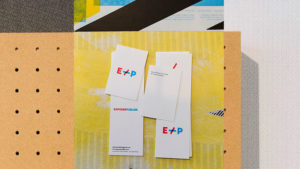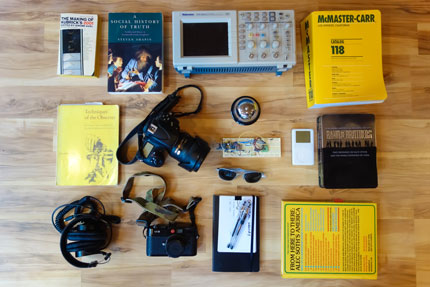
Benoit Brient, Léo Coquet & Caroline Sebilleau / Penser l’exposition comme publication d’une recherche artistique. Concevoir l’objet imprimé comme forme et espace d’exposition.
Source : ExposerPublier
Enjeux et formes contemporaines de l'exposition

Benoit Brient, Léo Coquet & Caroline Sebilleau / Penser l’exposition comme publication d’une recherche artistique. Concevoir l’objet imprimé comme forme et espace d’exposition.
Source : ExposerPublier

Pour une approche critique croisée de la littérature et des arts contemporains, ce carnet invite à reconsidérer les nouvelles formes de littérature à travers le prisme de l’esthétique (et réciproquement).
Le carnet a pour but de faire état de l’avancée des travaux menés dans le cadre du séminaire, de rassembler les références à même de délimiter des zones de contact entre productions littéraires et artistiques aujourd’hui et les nouvelles formes de textualités qui en découlent. La somme du carnet permet donc d’établir un corpus à la fois littéraire, visuel et théorique sur ce champ émergent afin de le poser comme objet de réflexion et d’étude. En plus des comptes rendus réguliers des séances, le carnet permet de relayer les événements liés à l’approche croisée de la littérature et des arts contemporains (colloques, journées d’études, publications, rencontres, expositions, etc). (…)
Cette rencontre du littéraire et du visuel aboutit à une poïétique qui se manifeste, dans le champ des arts, sous forme de fragments, de fictionnalisations hybrides ou de rapports incomplets en attente d’une reconstruction mentale. Elle aboutit à de nouvelles modalités fictionnelles et visuelles dont le discours culturel, théorique et épistémologique reste à construire pour ces 50 années de « contemporanéité ».
Source :Présentation | Les Contemporains
Actually discussed for Kultur der Digitalität which hasn’t been, sadly enough, translated yet, Felix Stadler asked the right questions on the possibilities and the conditions on solidarity in digital conditions in this book, published 2013:
Felix Stalder’s extended essay, Digital Solidarity, responds to the wave of new forms of networked organisation emerging from and colliding with the global economic crisis of 2008. Across the globe, voluntary association, participatory decision-making and the sharing of resources, all widely adopted online, are being translated into new forms of social space. This movement operates in the breach between accelerating technical innovation, on the one hand, and the crises of institutions which organise, or increasingly restrain society on the other. Continuer la lecture de « Digital Solidarity by Felix Stalder »

Near Future Laboratory is a thinking, making, design, development and research practice based in California and Europe. The goal is to understand how imaginations and hypothesis become materialized to swerve the present into new, more habitable near future worlds. Their approach to future research leads to the production of case studies, events, workshops, fast-prototyped apps, innovative algorithms, curious objects, mock-ups, videos, fictional magazines, newspapers, product catalogs and more.

The Libre Graphics Research Unit is a traveling lab where new ideas for creative tools are developed. Its diverse activities range from the practical to the theoretical via writing, research meetings, experimental prototyping, conferences and workshops. The Research Unit is an initiative of four European media-labs actively engaged in Free/Libre and Open Source Software and Free Culture. This cross-disciplinary project involves artists, designers and programmers and is developed in dialogue with the Libre Graphics community.
Suspended spaces is an independent collective, set up above all with the desire to work together and with other artists and international researchers. It exists since 2007. It is based in Paris, Caen, Berlin.
Jan Kopp was born in 1970 in Frankfurt and lives in Paris and Rome. He is represented by the gallery Marion Meyer (Paris). He has exhibited in 2011 at the Abbey of Maubuisson and in 2012 at at the CRAC Alsace, the Fresnoy, the Collège des Bernardins (Paris), the Frac Alsace. Jacinto Lageira is a philosopher, professor in Aesthetics at the Université de Paris 1 (Panthéon-Sorbonne). Daniel Lê was born in 1961 in France, he lives in Paris. He is an artist and teaches visual arts at the Université Picardie Jules Verne (Amiens, France). Françoise Parfait is professor of visual arts and new media at the Université de Paris 1 Panthéon-Sorbonne, and an artist. Eric Valette is a lecturer in visual arts at the Université Picardie Jules Verne (Amiens, France) and an artist. He lives in Paris. websiteAre also members of the association Suspended spaces, Kader Attia, Marcel Dinahet, Maïder Fortuné, Valérie Jouve.
Source : http://www.suspendedspaces.net